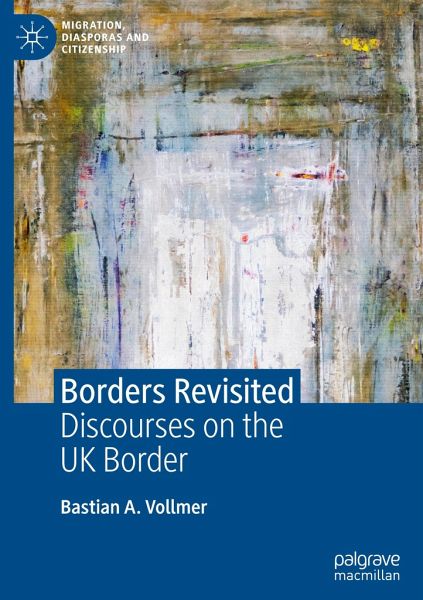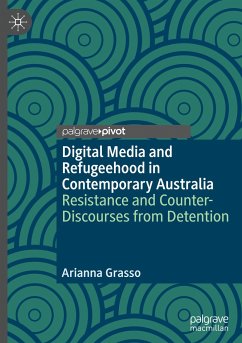
Borders Revisited
Discourses on the UK Border

PAYBACK Punkte
25 °P sammeln!
The nature and configuration of borders, and the relationship between state borders and societies, have changed. In the 21st century, internationalism, transnationalism, and super-diversity have further provoked complexities and anxieties. It seems that as border and migration regimes undergo dramatic transformations, their public profile increases.This book revisits borders, bordering practices, and meanings, with a particular focus on the United Kingdom as a case study. Bastian A. Vollmer examines not only the theoretical and historical dimensions of borders but also various empirical data, ...
The nature and configuration of borders, and the relationship between state borders and societies, have changed. In the 21st century, internationalism, transnationalism, and super-diversity have further provoked complexities and anxieties. It seems that as border and migration regimes undergo dramatic transformations, their public profile increases.
This book revisits borders, bordering practices, and meanings, with a particular focus on the United Kingdom as a case study. Bastian A. Vollmer examines not only the theoretical and historical dimensions of borders but also various empirical data, including extensive text corpora and dozens of in-depth interviews. Expanding on the concept of vernacular security-that is, an everyday understanding of security-he argues that the existential value of borders is not merely physical, but extends into the order and future construction of states and societies.
This book demonstrates decisively that the concept of theborder has not left the centre stage of philosophy, political theory, and political sociology, but has instead emerged as a focal point for multidisciplinary engagements. It further demonstrates how attention to a vernacular perspective can inform those engagements, yielding vital insights. As such, it should appeal to students and scholars across disciplines interested in the contemporary development and relevance of borders and their discursive cultures.
This book revisits borders, bordering practices, and meanings, with a particular focus on the United Kingdom as a case study. Bastian A. Vollmer examines not only the theoretical and historical dimensions of borders but also various empirical data, including extensive text corpora and dozens of in-depth interviews. Expanding on the concept of vernacular security-that is, an everyday understanding of security-he argues that the existential value of borders is not merely physical, but extends into the order and future construction of states and societies.
This book demonstrates decisively that the concept of theborder has not left the centre stage of philosophy, political theory, and political sociology, but has instead emerged as a focal point for multidisciplinary engagements. It further demonstrates how attention to a vernacular perspective can inform those engagements, yielding vital insights. As such, it should appeal to students and scholars across disciplines interested in the contemporary development and relevance of borders and their discursive cultures.














